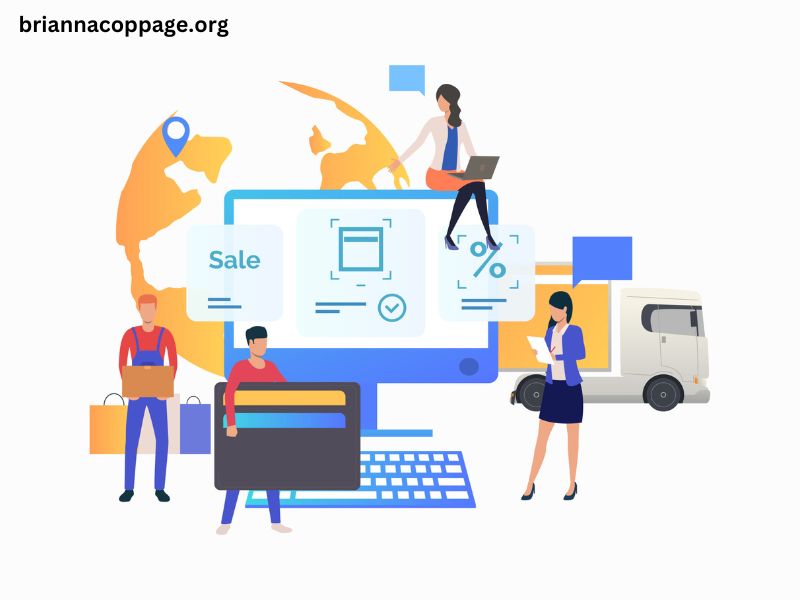In today’s fast-paced global economy, the distribution of goods is more crucial than ever. Efficient supply chain management not only reduces costs but also enhances customer satisfaction by ensuring that products reach consumers in a timely manner. One of the most transformative technologies in this area is artificial intelligence (AI). AI has the potential to revolutionize the way goods are distributed, providing innovative solutions to longstanding challenges in supply chain logistics. This article will explore how AI can improve the distribution of goods, focusing on its applications, benefits, and future potential.
Understanding the Supply Chain Landscape
Before delving into the role of AI, it’s important to understand the complexities of the supply chain. The distribution of goods involves multiple stages, including sourcing, production, warehousing, and transportation. Each stage presents its own set of challenges, such as demand forecasting, inventory management, route optimization, and risk management. Traditional methods often rely on manual processes and historical data, which can be inefficient and prone to errors.
In contrast, AI leverages advanced algorithms and vast amounts of data to optimize these processes. By incorporating machine learning, predictive analytics, and automation, AI can significantly enhance the efficiency and effectiveness of supply chains.
AI Applications in Supply Chain Management
- Demand Forecasting
One of the critical components of supply chain management is demand forecasting. Accurate predictions of customer demand allow businesses to maintain optimal inventory levels, reducing the costs associated with overstocking or stockouts. Traditional forecasting methods often rely on historical sales data and can be limited in their accuracy.
AI enhances demand forecasting by analyzing a multitude of factors that influence consumer behavior, such as seasonality, market trends, economic indicators, and even social media sentiment. For instance, machine learning models can process real-time data from various sources, providing businesses with actionable insights. This leads to more accurate predictions and a better alignment of supply with demand.
- Inventory Optimization
Effective inventory management is essential for minimizing costs and maximizing service levels. AI can optimize inventory by employing algorithms that analyze sales patterns, supplier performance, and lead times. For example, AI systems can predict when stock is likely to run low and automatically place orders with suppliers, ensuring that products are always available when customers need them.
Additionally, AI can identify slow-moving or obsolete inventory, allowing businesses to make informed decisions about markdowns or discontinuations. This not only frees up valuable warehouse space but also improves cash flow.
- Route Optimization
Transportation is a significant cost in the supply chain, and optimizing delivery routes can lead to substantial savings. AI algorithms can analyze traffic patterns, weather conditions, and delivery windows to determine the most efficient routes for transportation. This not only reduces fuel costs but also improves delivery times.
For example, companies like UPS and FedEx have implemented AI-driven route optimization systems that consider real-time traffic data and historical delivery performance. As a result, they can reduce delivery times and enhance customer satisfaction.
- Risk Management and Resilience
The global supply chain is subject to various risks, including natural disasters, geopolitical tensions, and economic fluctuations. AI can help businesses identify potential risks and develop contingency plans. By analyzing historical data and current trends, AI can provide early warnings of disruptions, enabling companies to respond proactively.
For instance, AI can assess the vulnerability of suppliers based on their location, financial stability, and past performance. This allows businesses to diversify their supplier base and minimize the impact of potential disruptions.
- Automation of Repetitive Tasks
AI can automate many repetitive tasks within the supply chain, freeing up human resources for more strategic activities. For example, warehouse operations can be enhanced through AI-powered robots that manage picking, packing, and sorting tasks. This not only increases efficiency but also reduces the likelihood of human error.
Furthermore, AI-driven chatbots can handle customer inquiries related to order status and delivery tracking, improving customer service while minimizing the workload for human agents.
Benefits of AI in Distribution
The integration of AI into supply chain management offers several key benefits:
- Increased Efficiency
AI’s ability to analyze vast datasets and automate routine tasks leads to significant efficiency gains. Businesses can streamline operations, reduce lead times, and optimize resource allocation.
- Cost Reduction
By enhancing demand forecasting, inventory management, and route optimization, AI helps companies minimize operational costs. This can result in substantial savings, particularly for businesses with complex supply chains.
- Improved Customer Satisfaction
With faster delivery times and better inventory management, customers receive their orders more quickly and accurately. This enhances the overall customer experience and can lead to increased loyalty.
- Enhanced Decision-Making
AI provides data-driven insights that empower managers to make informed decisions. With access to real-time information, companies can respond quickly to changing market conditions and consumer preferences.
- Sustainability
AI can contribute to more sustainable supply chains by optimizing transportation routes and reducing waste through better inventory management. This not only benefits the environment but also aligns with the growing consumer demand for sustainable practices.
Future Potential of AI in Supply Chain Management
As technology continues to evolve, the potential applications of AI in supply chain management are likely to expand. Here are a few areas to watch:
- Predictive Analytics
The development of even more sophisticated predictive analytics models will allow businesses to anticipate market changes and consumer preferences with greater accuracy. This will lead to more responsive and agile supply chains.
- Blockchain Integration
The integration of AI with blockchain technology can enhance transparency and traceability within the supply chain. This will provide businesses with real-time visibility into their supply chains, allowing for more informed decision-making and risk management.
- Collaborative Robots (Cobots)
The use of collaborative robots, or cobots, alongside human workers will become more prevalent. These robots will assist with various tasks, improving efficiency while allowing human employees to focus on more complex activities.
- Hyperautomation
Hyperautomation refers to the use of advanced technologies, including AI, machine learning, and robotic process automation, to automate processes across the supply chain. This approach will further streamline operations and reduce the need for manual intervention.
- Enhanced Customer Insights
AI’s capabilities in analyzing consumer behavior will continue to evolve, providing businesses with deeper insights into customer preferences and trends. This will allow companies to tailor their offerings and improve overall customer satisfaction.
Conclusion
The integration of artificial intelligence into supply chain management represents a significant advancement in the distribution of goods. By enhancing demand forecasting, optimizing inventory, and automating repetitive tasks, AI offers businesses the tools they need to navigate the complexities of modern supply chains. As technology continues to advance, the potential for AI to revolutionize logistics and distribution will only grow, promising a future of greater efficiency, cost savings, and improved customer experiences. Embracing these innovations will be essential for companies looking to thrive in an increasingly competitive marketplace.






